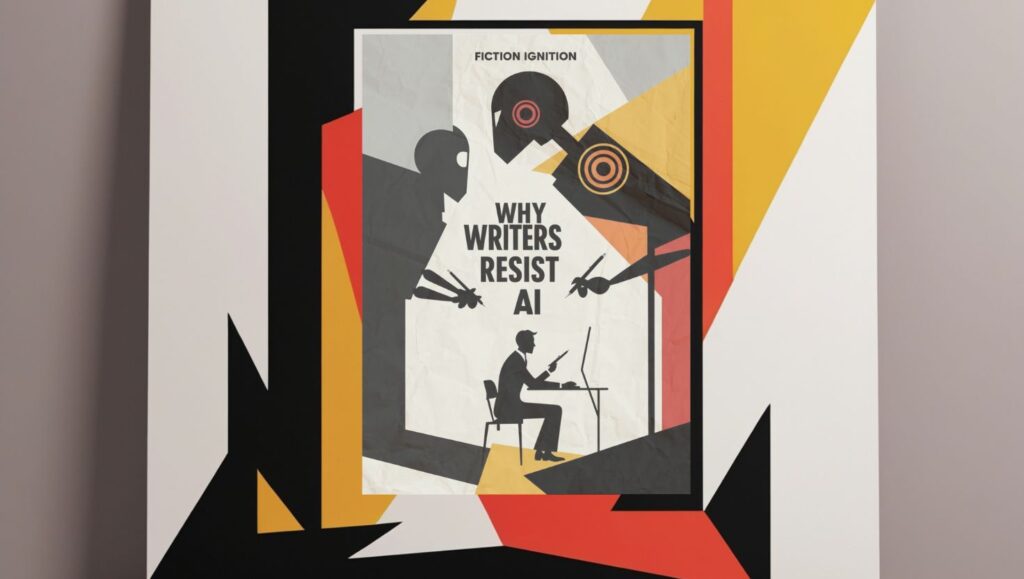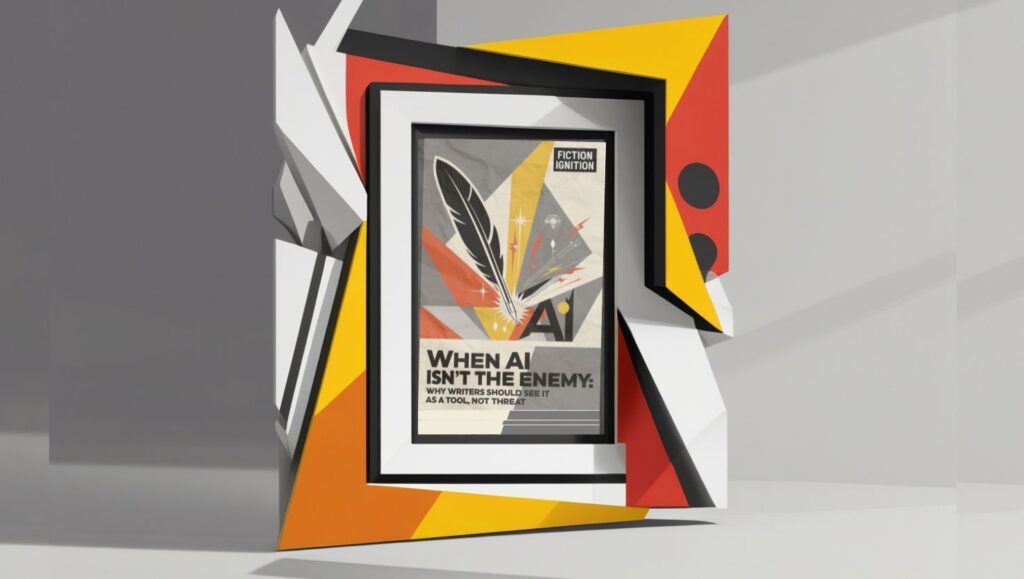Greetings, Fiction Igniters!
Let’s dive into a topic that’s hotter than a dragon’s breath and twice as controversial: Why Writers Resist AI. We’re about to crack open the psychology behind this fear of our mechanical friends (or foes?). Buckle up, my Literary Pyromaniacs, because this ride has twists, turns, and a whole lot of fiery insights.
10. Fear of Replacing Human Creativity
Imagine Frankenstein’s monster scribbling a bestseller—terrifying, right? Writers often fear AI will overshadow their creativity. This stems from a deep belief: creativity is uniquely human.
Curious Fact: In 1818, Mary Shelley’s “Frankenstein” raised questions about the dangers of science eclipsing humanity. Over 200 years later, we’re asking the same about AI.
Actionable Tip: Remember, AI is a tool, not a creator. Think of it as a paintbrush; you’re still the artist who decides what to paint. For example, Stephen King doesn’t fear typewriters; he masters them.
9. Cognitive Dissonance Is a Beast
Writers wrestle with cognitive dissonance: the clash between loving progress and fearing its consequences. On one hand, AI tools are cool. On the other, they make us question our relevance.
Anecdote: When Bob Dylan went electric at Newport in 1965, purists booed. Today, those electric performances are legendary. Change feels wrong at first, but it’s often what’s needed to stay relevant.
Actionable Tip: Embrace the discomfort. Use AI as Dylan used his electric guitar—to amplify your unique voice.
8. Resistance to Change: The Creative Curse
Writers thrive on the familiar—our favorite genres, tools, and routines. When a shiny new AI disrupts that, it’s like asking Hemingway to use Snapchat instead of a typewriter.
Example: J.K. Rowling outlined the entire “Harry Potter” series by hand. She resisted tech but still evolved her storytelling over seven books.
Actionable Tip: Start small. Test AI for mundane tasks like spell-checking or brainstorming. No one’s asking you to draft “The Great AI Novel” just yet.
7. Loss of Authenticity: Can a Robot Have Soul?
Ever felt like AI writing lacks heart? That’s because it’s true! Algorithms mimic patterns but don’t understand humanity—at least not like Maya Angelou or George Orwell did.
Example: Orwell’s “1984” captures the soul of human struggle. Could an AI grasp those nuances? Doubtful.
Actionable Tip: Use AI for structural help but keep the emotional core human. Think of it as a co-pilot, not the pilot.
6. The Myth of Effortless Genius
We romanticize the tortured writer trope—hours of struggle and caffeine-fueled nights. If AI makes writing easier, does it cheapen the art?
Example: Ray Bradbury wrote “Fahrenheit 451” in nine days on a rented typewriter. Speed doesn’t lessen brilliance.
Actionable Tip: Use AI to streamline, not replace. Save your energy for the big ideas that no machine can dream up.
5. Trust Issues: Will AI Steal My Ideas?
Paranoia alert! Some writers worry AI could hijack their ideas. What if ChatGPT writes “your” novel?
Anecdote: H.G. Wells feared new tech would erode creativity. Instead, he used those fears to inspire “The War of the Worlds.”
Actionable Tip: Stay original. An AI might generate plots, but only you can infuse them with your voice.
4. The Fear of Being Forgotten
Deep down, every writer fears irrelevance. If AI can write, edit, and market stories, where does that leave us?
Curious Fact: Ernest Hemingway’s six-word story (“For sale: baby shoes, never worn”) proves brevity can shake souls. Machines may craft words, but impact requires human empathy.
Actionable Tip: Focus on depth. Machines might write words, but only you can tell the truth of being human.
3. Comparing Yourself to AI (Stop That!)
Writers are notorious for comparing themselves to others. Add AI to the mix, and it’s a recipe for despair.
Anecdote: When Agatha Christie started, she feared being “not good enough.” Decades later, she’s the Queen of Mystery.
Actionable Tip: View AI as competition that sharpens your skills. It’s like playing chess against a grandmaster—you improve with every match.
2. The Romance of Writing
Writers romanticize the struggle: the ink-stained hands, the midnight epiphanies. AI feels like cheating.
Example: Jack Kerouac’s “On the Road” was typed on a single scroll of paper—a labor of love. Machines can’t replicate that passion.
Actionable Tip: Keep the romance alive. Write the first draft yourself; let AI help refine it.
1. Fear of Losing Control
Ah, control—the writer’s sacred grail. Trusting AI feels like handing over the steering wheel.
Curious Fact: In “Misery,” Stephen King explored a writer’s worst nightmare: losing control over their story. AI isn’t Annie Wilkes, but the fear feels real.
Actionable Tip: Stay in the driver’s seat. Use AI, but make sure every decision aligns with your vision.
Final Thoughts
The truth, Fiction Igniters, is that AI isn’t here to replace us. It’s here to challenge us, inspire us, and, yes, occasionally freak us out. But remember, the pen’s still in your hand. You control the story—not the machine.
So, until next time: don’t write, ignite!


